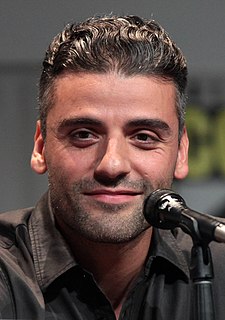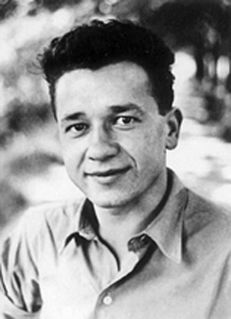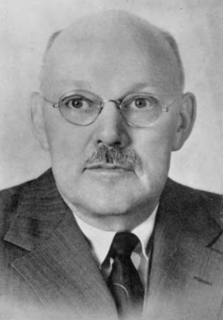A Quote by Joshua Greene
Morality is essentially a suite of psychological mechanisms that enable us to cooperate. But, biologically at least, we only evolved to cooperate in a tribal way. Individuals who were more cooperative with those around them - could outcompete others who were not. However, we have the capacity to take a step back from this and ask what a more global morality would look like. Why are the lives of people on the other side of the world worth any less than those in my immediate community? Going through that reasoning process can allow our moral thinking to do something it never evolved to.
Quote Topics
Allow
Any
Around
Ask
Back
Capacity
Community
Cooperate
Cooperative
Could
Enable
Essentially
Evolved
Global
Going
However
Immediate
Individuals
Least
Less
Like
Lives
Look
Mechanisms
Moral
Morality
More
Never
Only
Other
Others
Our
People
Process
Psychological
Reasoning
Side
Something
Step
Suite
Take
Than
Them
Thinking
Those
Through
Tribal
Us
Way
Were
Why
World
Worth
Would
Related Quotes
When you are thinking about whether you have an obligation to try to save people's lives, you don't usually think, well, how close by are they? Understanding what we are reacting to can change the way we think about the problem. If, biologically, morality evolved to help us get along with individuals in our community, it makes sense that we have heartstrings that can be tugged - and that they are not going to be tugged very hard from far away. But does that make sense? From a more reflective moral perspective, that may just be a cognitive glitch.
We can cooperate more easily with those who more easily intelligible to us, who are more familiar to us. But the advantages of specialization of labor often push us in the direction working with people who have different strengths and viewpoints than we do. I think that this is one major reason why moralities are always subject to change, because some of the people we cooperate with are going to be different from us in ways that often lead them to have different value orientations than we have; and interacting with them can change us.
Back when we were Neanderthals or whatever, we evolved to think along tribal lines. Survival was based on this idea of who are we and who are the others who will come and take our resources. I think it's an animal and a human thing that we all see in terms of us vs. them, and race is a very easy way to separate who is us and who is them.
I saw my job [as president] as to try to move the world from an unstable condition of interdependence toward more integrated cooperative world community. Therefore, my approach was to cooperate wherever possible and to build institutions of cooperation, an expanded NATO, the World Trade Organization, the Summit of the Americas, the Asian Pacific Leaders, all those, the coalition to fight in Bosnia and Kosovo, to cooperate wherever possible but to act alone if we had to.
My version of relativism is pluralistic and attributes functions to morality that in combination with human nature place limits on what could count as a true morality. Unlike many other relativists, I do not hold that people are subject to a morality because they all belong to a certain group. That is, I don't hold that being a member of a group makes one's subject to some set of generally accepted norms. What is true is that others around us teach us morality and moral language, so they inevitably influence us.
People who go around saying that it is wrong to fly and to eat meat are not so much making appeals to us from within our shared morality, but engaging in something more like "persuasive definition." They want us to look at the world and ourselves in a different way. Someday these prohibitions against flying and eating meat may be written into our moral psychology, but it will only be after there are viable, widely shared alternatives that are beginning to be widely adopted.
The world is ruled by neither justice nor morality; crime is not punished nor virtue rewarded, one is forgotten as quickly as the other. The world is ruled by power and power is obtained with money. To work is senseless, because money cannot be obtained through work, but through exploitation of others. And if we cannot exploit as much as we wish, at least let us work as little as we can. Moral duty? We believe neither in the morality of man nor in the morality of systems. [p. 168]
This is not just a simple story of "money can't buy happiness." Or maybe that's just what it is. And if it is, why shouldn't it be? Because if this is something we are already supposed to know, then why don't we know it? Why do we chase and scrabble and fight for things to flaunt, why? Why do we reach for power over other people, and through the thin superiority of our possessions, believe we have it? Why do we let money make people bigger, and allow those without it to be made smaller? How did we lose the truth in the frantic, tribal drumbeat of more, more, more?
... the cooperative forces are biologically the more important and vital. The balance between the cooperative and altruistic tendencies and those which are disoperative and egoistic is relatively close. Under many conditions the cooperative forces lose, In the long run, however, the group centered, more altruistic drives are slightly stronger. ... human altruistic drives are as firmly based on an animal ancestry as is man himself. Our tendencies toward goodness... are as innate as our tendencies toward intelligence; we could do well with more of both.
I wish more of us could understand that our increasing isolation, no matter how much it seems to express pride and self-affirmation, is not the answer to our problems. Rather, the answer is a revival of our ancient commitment to God, who rules over all the peoples of the world and exalts no one over any other, and to the moral and spiritual values which were once legendary in America. We must reach out our hand in friendship both to those who would befriend us and those who would be our enemy.
We become so caught up in the busyness of our lives. Were we to step back, however, and take a good look at what we’re doing, we may find that we have immersed ourselves in the “thick of thin things.” In other words, too often we spend most of our time taking care of the things which do not really matter much at all in the grand scheme of things, neglecting those more important causes.
It is never to be expected in a revolution that every man is to change his opinion at the same moment. There never yet was any truth or any principle so irresistibly obvious that all men believed it at once. Time and reason must cooperate with each other to the final establishment of any principle; and therefore those who may happen to be first convinced have not a right to persecute others, on whom conviction operates more slowly. The moral principle of revolutions is to instruct, not to destroy.




































